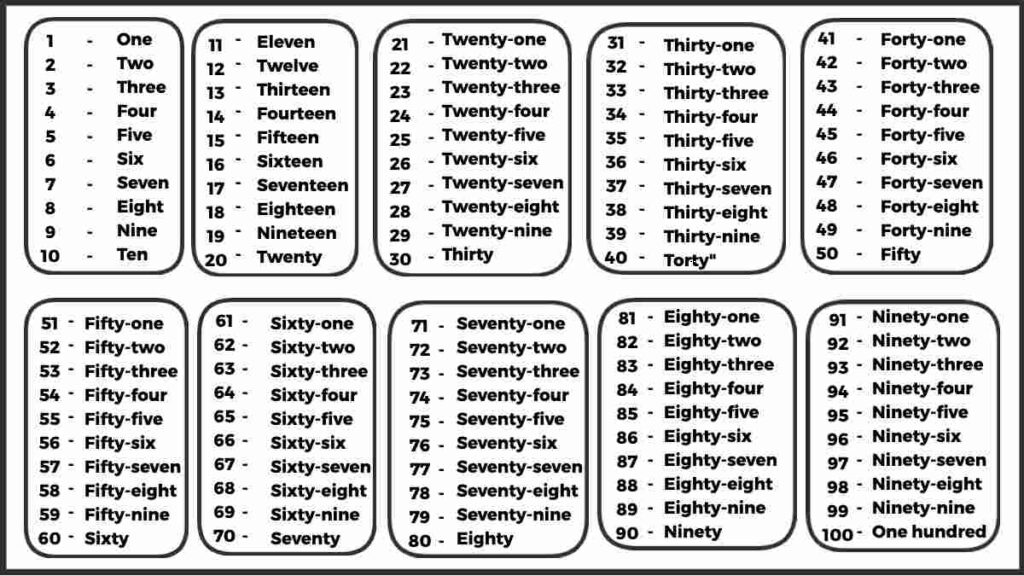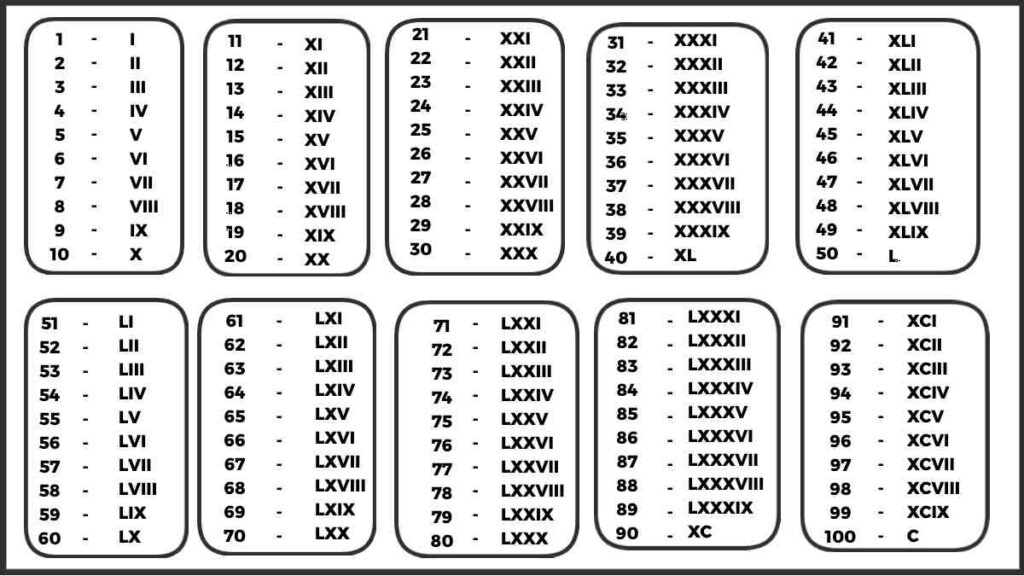On this page, if you are going to read the complete information about Composite Numbers from 1 to 200, then definitely read the post completely.
On the previous page, we have shared the information about whole number and integer number, if you have not read those posts, then definitely read them.
Let us read and understand all the information about Composite Numbers from 1 to 200 on this page.
What is a Composite Number
A natural number which is divisible by at least one other number other than itself and 1 is called a composite number.
Ex :- 4, 6, 8, 9, 10, 12, ………infinite.
Composite Numbers from 1 to 100

| 22 | 42 | 62 | 82 | |
| 4 | 24 | 44 | 64 | 84 |
| 6 | 26 | 46 | 66 | 86 |
| 8 | 28 | 48 | 68 | 88 |
| 10 | 30 | 50 | 70 | 90 |
| 12 | 32 | 52 | 72 | 92 |
| 14 | 34 | 54 | 74 | 94 |
| 16 | 36 | 56 | 76 | 96 |
| 18 | 38 | 58 | 78 | 98 |
| 20 | 40 | 60 | 80 | 100 |
How to Find Composite Numbers
All positive integers whose factors are two or more than two are called composite numbers.
That is, if understood in simple language – positive numbers having three or more than three factors are called composite numbers.
As :-
20 ÷ 1 = 20
20 ÷ 2 = 10
20 ÷ 4 = 5
20 ÷ 5 = 4
20 ÷ 20 = 1
The factors of 20 are 20, 10, 5, 4 and 1. These factors are more than three. That is, these are Composite Numbers.
Composite Numbers from 101 to 200

| 102 | 110 | 116 | 121 | 126 | 133 | 140 | 145 | 152 | 158 | 165 | 174 | 180 | 187 | 194 |
| 104 | 111 | 117 | 122 | 128 | 134 | 141 | 146 | 154 | 159 | 166 | 175 | 182 | 188 | 195 |
| 105 | 112 | 118 | 123 | 129 | 135 | 142 | 147 | 155 | 160 | 168 | 176 | 184 | 189 | 196 |
| 106 | 114 | 119 | 124 | 130 | 136 | 143 | 148 | 156 | 162 | 170 | 177 | 185 | 190 | 198 |
| 108 | 115 | 120 | 125 | 132 | 138 | 144 | 150 | 157 | 164 | 172 | 178 | 186 | 192 |
Problems Based on Composite Numbers
Question 1. How many composite numbers are there between 1 to 10?
A. 2
B. 4
C. 6
D. 8
The composite numbers from 1 to 10 are :- 4, 6, 8, 10.
Hence there are 4 composite numbers between 1 and 10.
Question 2. What is the smallest even composite number?
A. 2
B. 4
C. 6
D. 8
Answer:- The smallest even composite number is 4.
Question 3. What is the sum of first 10 composite numbers?
A.125
B.120
C.135
D.130
Solution:- According to the question,
First 10 composite numbers – 4, 6, 8, 10, 12, 14, 16, 18, 20, 22
Sum of first 10 composite numbers = 4 + 6 + 8 + 10 + 12 + 14 + 16 + 18 + 20 + 22
Answer:- 130
Question 4. What will be the average of 35 consecutive even numbers?
A. 30
B. 31
C. 32
D. 36
Solution:- According to the question,
n = 30
Average of n consecutive even numbers = 35 + 1
mean = 36
Answer:- 31
Question5. What will be the average of 50 consecutive even numbers?
A. 21
B. 31
C. 41
D. 51
Solution:- According to the question,
n = 50
Average of n consecutive even numbers = 50 + 1
average = 51
Answer:- 51
Question 6. What will be the difference between the first 7 composite numbers and the first 4 prime numbers?
A. 41
B. 54
C. 61
D. 71
Solution:- According to the question,
First 7 composite numbers – 4, 6, 8, 10, 12, 14, 16
First 3 prime numbers – 1, 3, 5, 7
Difference between composite numbers and prime numbers = (4 + 6 + 8 + 10 + 12 + 14 + 16) – (1 + 3 + 5 + 7)
= 70 – 16
Answer:- 54
Question 7. What will be the average of 2, 4, 6, 8, 10, 12, 14, 16, 18 and 20?
A. 11
B. 13
C. 15
D. 17
Solution: According to question,
n = 20
Average of consecutive even numbers up to n = (n+2)/2
Average = (20+2)/2
= 22/2
Answer:- 11
Question 8. What will be the difference between the first 10 composite numbers and the first 5 prime numbers?
A. 41
B. 51
C. 96
D. 105
Solution:- According to the question,
First 10 composite numbers – 4, 6, 8, 10, 12, 14, 16, 18, 20, 22
First 5 prime numbers – 1, 3, 5, 7, 9
The difference between composite numbers and prime numbers = (4 + 6 + 8 + 10 + 12 + 14 + 16 + 18 + 20 + 22) – (1 + 3 + 5 + 7 + 9)
= 130 – 25
Answer:- 105
Hope you liked this post on Composite numbers from 1 to 100.
Comment any question related to composite numbers from 1 to 100.


